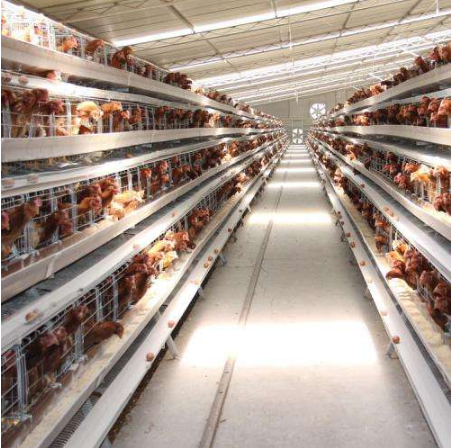More and more people choose to raise chickens. It is necessary to know that temperature has the greatest impact on chicken production performance. In the brooding period, chicks have poor resistance and high temperature requirements. In the breeding and laying stages, it is suitable. The temperature is a guarantee that the chicken will perform normally. If the temperature is higher, the feed intake of the chicken is decreased, the feed conversion rate is decreased, the weight gain of the broiler is slowed down, the weight of the egg is reduced, the quality of the eggshell is decreased, the egg production rate is decreased, and the low temperature causes the maintenance of the chicken to be increased, and the growth is increased. Slow, low temperature in winter and excessive temperature fluctuations in the house will reduce the resistance of the chicken, lower the egg production, induce respiratory diseases in the flock until the moulting is stopped, which indicates that the temperature is causing heat stress in the poultry and affecting the flock. The primary environmental factor for health and performance.
1 The effect of high temperature on chicken
Chickens are warm-blooded animals that maintain a constant body temperature through heat production and heat dissipation. The appropriate temperature varies with the age of the chicken. Chicks have strict temperature requirements in the first few weeks, whether it is to use thermal insulation for local heating or The entire house is heated and the temperature in the area where the chicks are located must be guaranteed. The optimum temperature for laying hens is 18 °C ~ 23 °C. At suitable temperature, laying hens have high feed utilization rate, strong disease resistance, high egg production rate and high economic benefits in poultry cages for sale.
2 The effect of low temperature on chicken
Low temperature will first increase the maintenance needs of the chicken, increase the meat-to-meat ratio of the broiler, decrease the egg production rate of the breeder, and reduce the resistance of the chicken to the disease. When the temperature of the house is too low in winter, the ventilation required for maintaining the temperature is not guaranteed. It will cause imbalance between temperature and ventilation management, resulting in an increase in the concentration of harmful gases such as ammonia in winter chicken houses. When the temperature difference in the house is large, especially when the outside temperature suddenly changes, heating or ventilation is not very good. Coordination, the temperature fluctuation in the house is too large, and the sudden drop in temperature will cause cold stress, which will cause the respiratory disease of the flock at the same time as the production performance declines.
